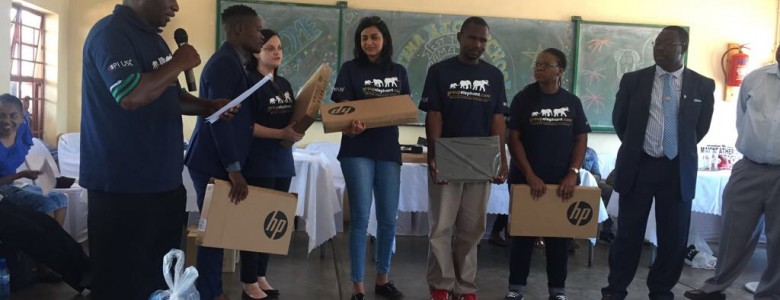
Making a difference at Ramatema High School, Limpopo
One of the biggest challenges facing rural communities in South Africa is a lack of adequate educational facilities. This, combined with other challenges such as poor sanitation and little or no access to water and electricity supplies, results in limited economic opportunities for the local population. If these challenges are not addressed with urgency young people in rural communities will lack the necessary skills to either be employed in the formal sector or to create their own informal employment. On March 4th 2017, we took a bold step towards addressing this challenge at its roots and creating a replicable solution to the endemic problem. One of our ERP Ambassadors, Clement Maosa, approached us with his idea of giving back to his former school, Ramatema Secondary School, in Senwabarwana. As a well-known local South African actor, and celebrity, Clement wanted to positively influence learners in Senwabarwana, by sharing his life’s experiences. Clement brought along some of his fellow South African celebrities and donated stationery and other educational items to the students. We were also able to donate the following items to this secondary school:
- One projector and five whiteboards
- Five laptops – one each to be given to grades 8-12
- The provision of Mindset Learning material to assist students in support of their curriculum
ERP branded t-shirts for the matriculating class were handed out to raise awareness of the importance of conserving wildlife in order to protect the community’s heritage and thereby provide economic opportunities through conservation and tourism. Thus expressing the essence of the ERP mission:
“To protect and conserve elephants and rhinos through the alleviation of poverty”
Two hundred and seventy three learners, attending this school, will be the beneficiaries of this initiative. Going forward, we will be monitoring the impact that these laptops and projector have on the students, particularly, those writing their final examinations. Baseline information will be established in order to be able to compare the performance of students before and after the intervention. Once the efficacy of the impact of this larger scale intervention has been proven, the intention is to replicate this throughout rural schools raising the standard of education wherever it is required.


























